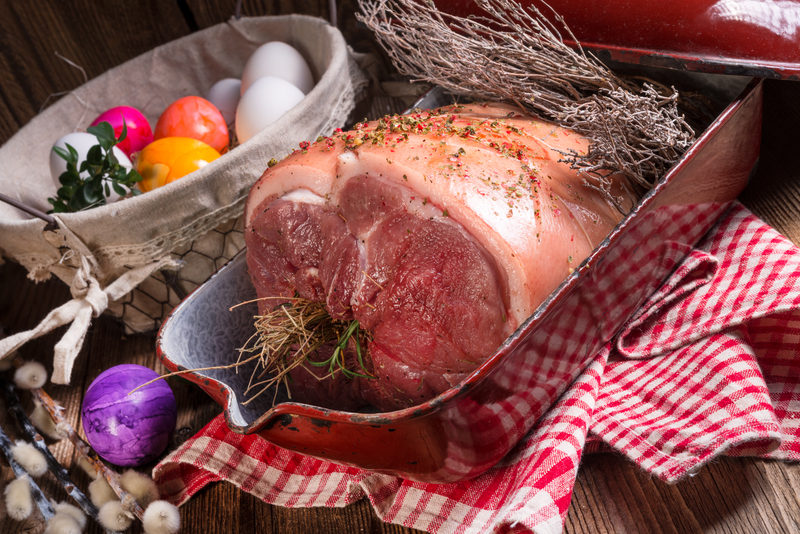How to Properly Dispose of Unwanted Cookware: A Complete Guide
Unwanted cookware often accumulates in our kitchens--old pots, scratched pans, broken lids, and mismatched items from sets long forgotten. Disposing of such items can be confusing, especially when you're looking to do so responsibly and in an eco-friendly manner. In this comprehensive guide, we'll teach you how to properly dispose of unwanted cookware using various methods, so you can declutter your home while keeping environmental impact in mind.
Understanding Cookware Materials: Key to Responsible Disposal
Before you toss your old pots and pans, it's essential to understand what they're made from. Cookware is constructed from various materials, each requiring a unique disposal approach.
- Stainless Steel: Durable, recyclable, and a common choice in cookware.
- Aluminum: Lightweight and recyclable, but sometimes coated or clad with other materials.
- Cast Iron: Long-lasting, can be recycled or restored.
- Copper: Highly valued for recycling due to its cost.
- Nonstick (Teflon): Contains coatings that may require special handling.
- Ceramic or Glass: Not easily recyclable in traditional facilities.
*Identifying your cookware's base material is the first step* in proper disposal, as it will guide your choices for responsible action.

Why Properly Disposing of Cookware Matters
Improper disposal of old pots and pans contributes to landfill waste and potentially environmental hazards, especially when nonstick chemicals leach out. By choosing the best disposal method, you help reduce environmental harm and may even benefit others in need.
The Environmental Impact of Tossing Cookware
When cookware is simply thrown in the trash:
- Metal parts take centuries to decompose
- Coatings may release toxins as they break down
- Missed opportunities for reuse or recycling
An eco-friendly approach to disposing of unwanted cookware is better for our planet and future generations.
Best Ways to Get Rid of Unwanted Cookware
There is no one-size-fits-all solution. Let's look at several safe and responsible options.
1. Donate Usable Cookware
Donating old cookware helps others and keeps items out of landfills. Many organizations and charities accept gently used kitchenware.
- Local Thrift Stores & Charities: Goodwill, Salvation Army, or local food banks often welcome functional pots and pans.
- Community Shelters: Homeless shelters and domestic violence refuges may use donated cookware for communal meals.
- College Students or Young Adults: Students moving into their first apartments can benefit greatly from free cookware.
*Tip: Thoroughly clean donated items and ensure there are no dangerous chips, sharp edges, or flaking coatings.*
2. Recycle Old Cookware
If your cookware is beyond reuse, recycling is the next best option. However, not all recycling centers accept cookware, especially if it's nonstick or has mixed materials.
- Metals Recycling Yards: Scrap metal dealers typically accept stainless steel, aluminum, copper, and cast iron cookware. Ensure the pieces are mostly metal and free from plastic handles or rubber parts.
- Municipal Recycling Centers: Some curbside programs have metal recycling days or drop-off points for larger items.
- Retailer Recycling Programs: Certain stores (like Best Buy, Home Depot, or specialty kitchenware retailers) may offer take-back or recycling services. Call ahead to ask.
Always check with your local recycling facility before dropping off cookware. Many centers do not accept cookware due to coatings or attached non-metal parts.
3. Repurpose or Upcycle Cookware
Get creative! Upcycling old cookware gives new life to items otherwise destined for the dump.
- Plant Pots: Old saucepans and skillets make excellent plant containers for herbs or flowers - just drill drainage holes in the bottom.
- Garden Art: Use lids as reflectors, or arrange pans in whimsical displays.
- Storage Solutions: Deep pots can become desk organizers or utensil holders.
*DIY projects not only minimize waste but also let you add a unique touch to your home or garden!*
4. Dispose of Damaged or Non-Recyclable Cookware Properly
Some cookware, especially ceramic, glass, or heavily coated nonstick items, can't be recycled through regular municipal programs. Here's what you can do:
- Check for Household Hazardous Waste Events: Some regions accept nonstick and coated pans during special waste events due to the chemicals they contain.
- Landfill as a Last Resort: If all else fails, make sure cookware is wrapped to prevent injury and placed in the trash according to local guidelines. Only use this as a last resort!
Types of Cookware and Specific Disposal Tips
1. Stainless Steel and Aluminum Pots & Pans
- Most scrap metal facilities will accept stainless steel and aluminum cookware, especially if they are not coated with Teflon or have non-metal handles.
- Remove and separately dispose of non-metal parts if possible.
- If recycling isn't an option, donate if in usable condition.
2. Nonstick and Teflon-Coated Cookware
- Many recyclers will not accept nonstick pans due to their chemical coating.
- If the pan is still in good shape, consider donating or upcycling.
- Otherwise, check for local hazardous waste collection or send to landfill if allowed.
3. Cast Iron Pans
- Cast iron is prized for recycling and resale.
- If rusty, consider restoring it--cast iron can often be brought back to life with scrubbing and seasoning.
- If beyond repair, take it to a scrap metal facility.
4. Copper Cookware
- Copper is valuable at scrap yards, so it's seldom wasted.
- Remove rubber, plastic handles, or glass lids before recycling.
5. Ceramic, Glass, and Enamelware
- These items are generally not accepted in curbside recycling due to their composition and coatings.
- Donate if in good shape, or repurpose for home decor or art projects.
- Landfill as last option, making sure to avoid injury from broken pieces.
Common Mistakes When Disposing of Old Cookware
- Throwing pans in with curbside recycling without checking acceptability.
- Leaving plastic or rubber handles attached when recycling metal pans.
- Discarding usable cookware that could benefit someone else.
- Not considering upcycling or creative re-use before trashing.
Sustainable Shopping: How to Prevent Cookware Waste in the Future
Properly disposing of unwanted cookware is only one part of the solution. By making mindful purchasing decisions, you can reduce the need to discard cookware in the first place.
- Buy Durable, Timeless Designs: Invest in high-quality pots and pans that last for years.
- Avoid Cheap Nonstick: Opt for finishes known to endure or several types of cookware (e.g., stainless, cast iron).
- Consider Secondhand: Thrift shop finds can be both sustainable and cost-effective.
- Repair if Possible: Tighten loose handles or re-season cast iron rather than replacing right away.
Frequently Asked Questions About Disposing of Cookware
Can I put old pans in the recycling bin?
Usually, old pots and pans are not accepted in regular curbside bins due to size, material, or coatings. Instead, take them to a scrap metal dealer or special recycling event.
Is it safe to throw nonstick pans in the trash?
Many communities allow nonstick pans in regular household waste, but it's best to check with your local authority. Some coatings can be hazardous if incinerated.
Can cookware be repaired or restored?
Metal pans sometimes can be restored - for instance, rusty cast iron can be re-seasoned, or loose handles re-attached. If the pan is chipped, warped, or loses its nonstick properties, replacement may be necessary.
Will donation centers take scratched or dented pans?
Donation centers generally prefer items in usable and safe condition. Heavily scratched nonstick surfaces should be avoided due to health concerns.
How do I find a scrap metal yard for recycling cookware?
A quick internet search for 'scrap metal recycling near me' or checking municipal websites will point you to local facilities. Call ahead to confirm what types of cookware they accept.

Summary: Your Checklist for Disposing of Unwanted Cookware
- Identify the material of your cookware.
- Donate usable items to charities or those in need.
- Recycle metal cookware at scrap metal dealers or municipal centers if possible.
- Upcycle unusable items for home or garden projects.
- Dispose of damaged, hazardous, or non-recyclable cookware through proper waste collection or as a last resort, landfill disposal.
Conclusion: Make Cookware Disposal Responsible and Simple
Disposing of old, unwanted cookware might seem like a mundane chore, but when done thoughtfully, it helps minimize waste, supports your community, and conserves resources. By following the guidance above, you can properly dispose of unwanted cookware in an environmentally friendly way, ensuring your kitchen clean-out is both effective and sustainable.
Remember, the next time you sort through your cupboards, choose the best way to get rid of old pots and pans by considering donation, recycling, creative reuse, or, if needed, safe disposal. A clean kitchen is great--but a clean conscience is better!


